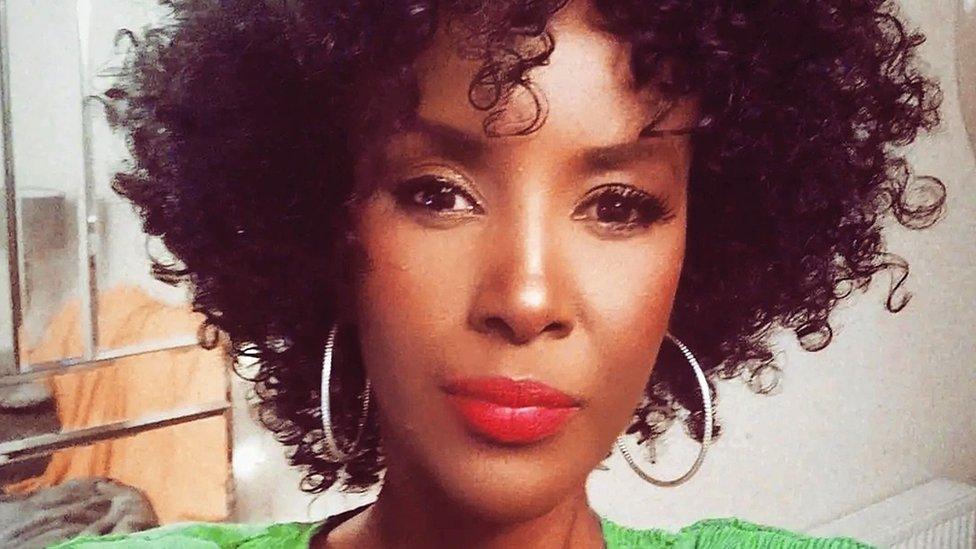'I wanted to be that person for black researchers'
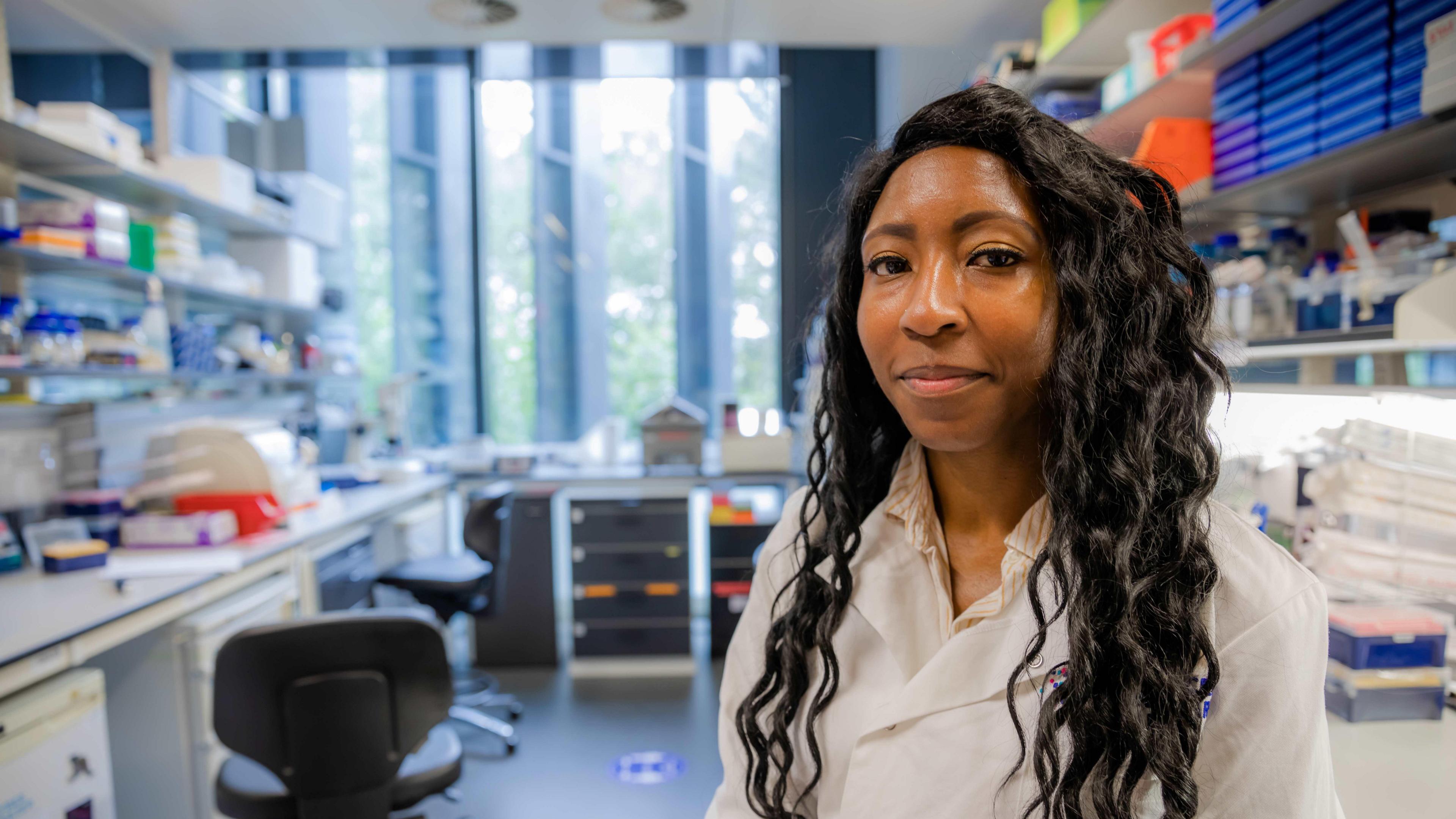
Black in Cancer was launched by Sigourney Bonner with US colleague Dr Henry Henderson – while she was studying for a PhD in paediatric brain tumours
- Published
A scientist who said black people were "underrepresented in research" and "overrepresented in cancer mortality" is driving a change in diversity.
Postdoctoral associate Sigourney Bonner launched Black in Cancer while studying for a PhD at the Cancer Research UK Cambridge Institute, at the University of Cambridge.
It aims to increase the number of black scientists in the field, enhance knowledge of the disease within the black community, and tackle misconceptions.
Ms Bonner said: "Until I started my PhD, I’d never met a black woman with a PhD...seeing black scientists working in this field is really important."
She added: "Just because somebody can see a job exists doesn’t mean they feel it’s achievable, so seeing black scientists working in this field is really important."
A study by Cancer Research UK and NHS Digital found black women were more likely, external than white women to be diagnosed with late-stage cancer.
Research by the Race Equality Foundation also found black patients reported more negative experiences, external of cancer care than white patients.
"Black patients are sometimes not heard, and referrals to oncologists can take longer and require more GP appointments for those from ethnic minority backgrounds," Ms Bonner said.
"There are a number of reasons why people might be less inclined to seek help, some of those can be socioeconomic factors, for example taking time off work to go to the GP and the financial impact of that, but the reasons can be complex, and both social and cultural."
She added Black in Cancer aimed to empower people in their healthcare decisions, increase participation in clinical trials, and get rid of misconceptions about the disease.
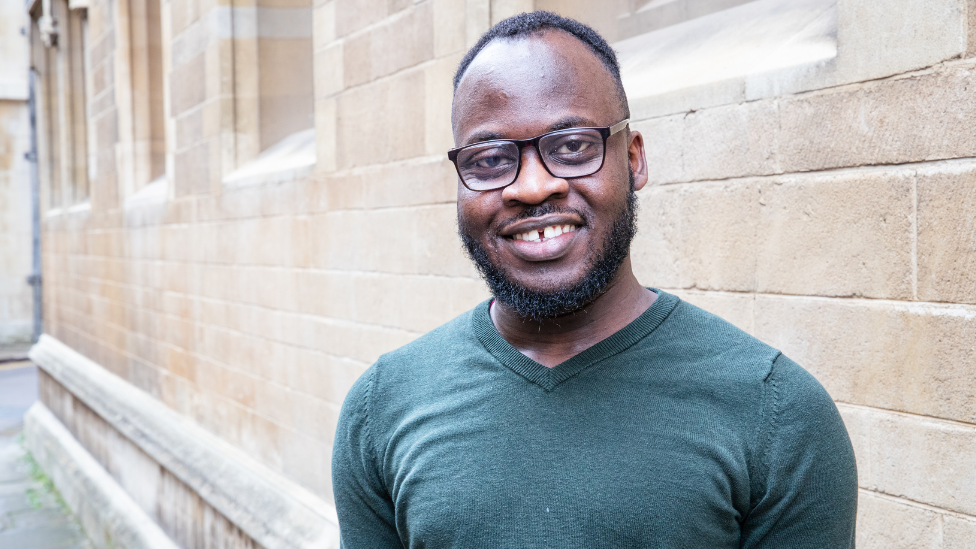
Randy Greaves said there were "so few black people working in this field"
Black in Cancer has worked with Cancer Research UK (CRUK) to launch the Black Leaders in Cancer PhD Scholarship Programme, external to help develop the next generation of black scientists.
Randy Greaves, in his first year of the CRUK-funded scholarship programme, said it gave him the opportunity to realise a life-long dream.
After his aunt died from cancer, he considered oncology but was unable to study medicine in Jamaica.
"I still wanted to learn more about cancer, because if I wasn’t going to become an oncologist, I was going to be a cancer researcher," Mr Greaves said.
"There are so few black people working in this field, particularly from low and middle income countries, so an opportunity like this is so important for researchers like me, and for the black community in general.
"In the Caribbean, there aren’t the same resources and facilities, and people aren’t as aware about cancer. So, when they do get sick it’s usually at an advanced stage. I hope I can help raise that awareness."
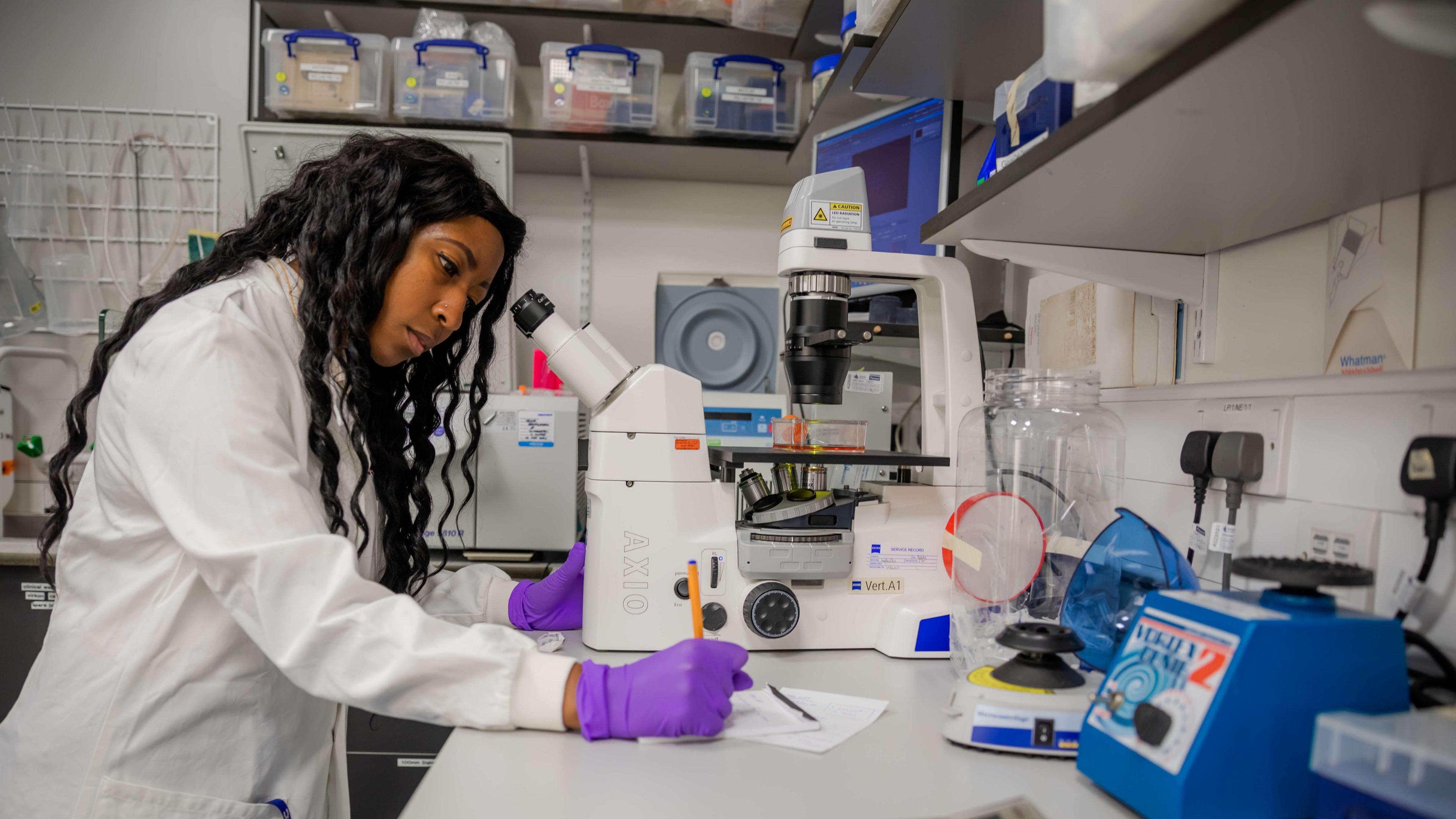
"Just because somebody can see a job exists doesn’t mean they feel it’s achievable," Ms Bonner said
Ms Bonner said the feedback and difference Black in Cancer had made to the lives of individuals had been rewarding.
“Until I started my PhD I’d never met a Black woman with a PhD, and by that point I’d done an undergraduate degree, and a year in industry at two different pharmaceutical companies," she said.
"I hadn’t met anybody who looked like me to aspire to, and so I wanted to be that person for black researchers starting out, to provide inspiration, resources and support."
Get in touch
Do you have a story suggestion for Cambridgeshire?
Follow Cambridgeshire news on BBC Sounds, Facebook, external, Instagram, external and X, external.
More like this story
- Published10 April 2024
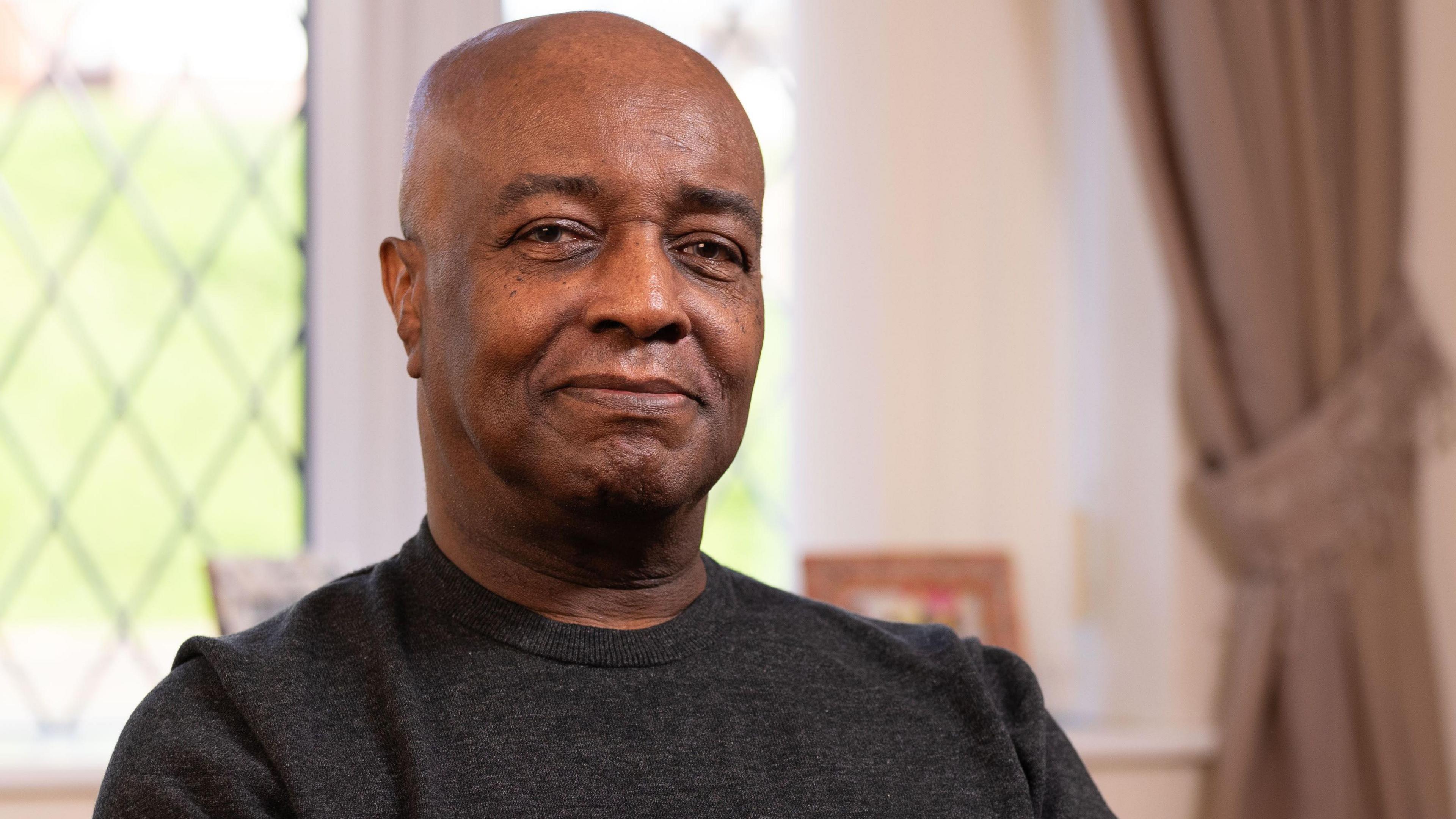
- Published26 October 2022
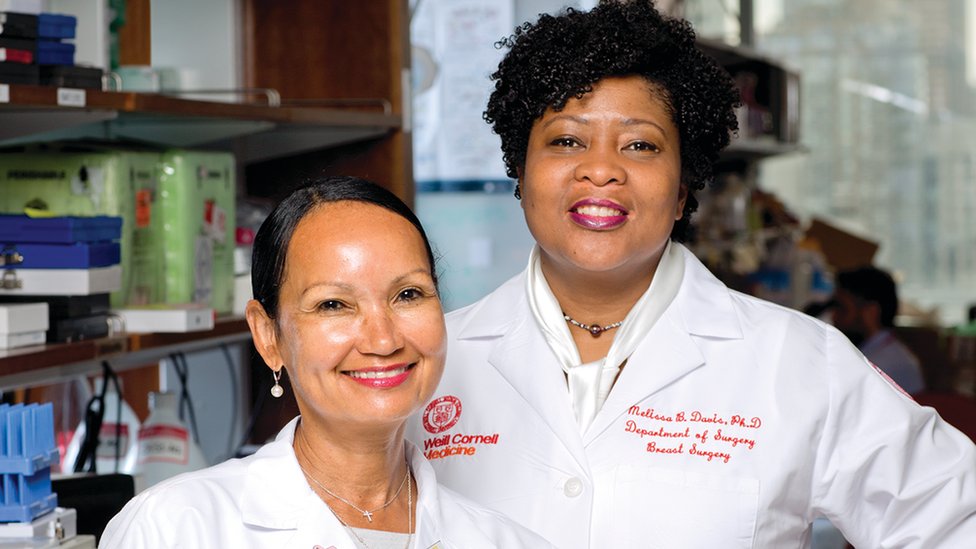
- Published16 July 2022
